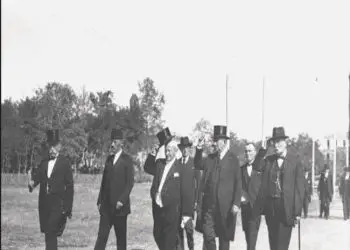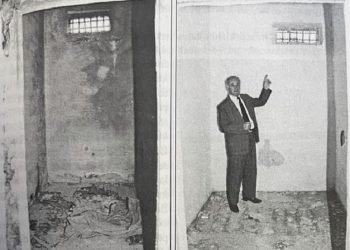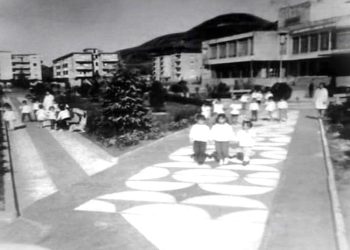Translated by Adil Bicaku
Stockholm
Memorie.al publishes a report by the well-known Swedish journalist, Sven Aurén, published in the newspaper “Svenska Dagbladet” of Stockholm regarding his four visits to Albania, starting from 1938 when he came for the wedding of King Zog and for him completed in September 1968 where he last visited Enver Hoxha’s communist Albania, after a long odyssey of several years to obtain a visa at the Albanian embassy in Paris, hiding as a tourist. Enver, an intelligent man, a fan of Stalin and Mao, rarely appears in public but is present everywhere, as his name is written down the mountain slopes, people are encouraged to make “Lightning Leaf”, a forger on the main road sells watch straps, without hours, Maps, big sad bars without lighting, Opera does not give any show, the only entertainment, the night club at Hotel “Dajti”, where all the tables are empty and only one with two policemen, the night in Tirana dead … / Notes and impressions of the Swedish journalist…
Follows from the previous number
Albania in September 1968
Life in Tirana
Of the many small shops of the time, only a few are left, but they too do not have much to offer. I remember a watchmaker on the main road selling watches but not watches. Commercial life is concentrated in state-owned warehouses, called MAPO, which means “People’s Warehouse,” large, sadly stocked bars with dark equipment reminiscent of the same warehouses in Beijing, where there is a shortage of goods on the shelves. Prices make you stunned. The average wage of a worker is between 250 and 500 kroner (kroner) * Swedish krona kr. (transl. note) per month and the latter in special cases. And all simple or say primitive law. Who are those Albanians who have the opportunity to buy in these MAPs? As far as people are concerned, there are other questions that cannot be silenced even though it can probably be described as tragic. When the war ended, Albania’s official injury statistics contained tens of thousands of invalids. This fact is constantly repeated in the war museums, which are located in all the big cities of the country. Where are they now? During the two weeks of traveling here I have not seen any invalids. What has found the elders? Elders can be counted on the fingers of one hand. I have the impression that the country consists only of working age population and children. It is likely that unproductive nationals are in concentration camps or isolated in isolated villages, but any questions about visiting a disability asylum- or nursing home; the immediate response is negative. In an Iron Age communist state, where as such everything is valued after the degree of utility, these observations seem disturbing.
This Tirana, rinsed and with only one alternative, where the rich no longer exist and the poor look less poor, is a new city. Not least, there is something that is exactly the same and that shows that the oriental features of the Albanians are alive; nepotism. If you ever walk on the street after dark you should be careful not to go near a large area, surrounded by a concrete wall. It was strictly guarded: the post guards watched with suspicion all the passers-by, occasionally you saw an automatic muzzle in the turret. Within the walls lived Zog with his mother and six sisters, all active in politics. The high positions were usually occupied by the royal family, who, because of the risk of assassination, did not want to appear outside their well-protected reserve. The state was run as a family enterprise with the monarch as executive director, family members as the perpetrator and the tribe as shareholders. The system has not undergone any profound changes. Today’s Albania is a communist family enterprise. The young gentlemen have set up a neighborhood of villas for themselves, apparently inspired by the once-forbidden city of Beijing. This is isolated as a wartime military chief. If you approach to drive well-armed guards, who seem to be even more than in the time of Zog and in addition were also the border (schefer). In this forbidden city (Blloku) live the three families that co-govern Hoxha, Shehu and Kapo. The most dominant figure is of course the General Secretary of the Communist Party, the former teacher of a school in Korça, Enver Hoxha, then come the two veterans of the party Shehu who is Prime Minister and Kapo, who is number two of the party. Mrs. Hoxha, Shehu and Kapo are super active communists and prominent members of the Central Committee of the Party, which in Albania and in other popular democracies constitute the basis of power. In other key positions there are again brothers, brothers-in-law and cousins. Only Hoxha has taken care to have assigned a brother, a son-in-law and six cousins to important tasks. This world, which is like a tribe, lives for itself. From time to time, Enver Hoxha, together with his associates and surrounded by police, comes out to inaugurate or give a speech and then returns to his neighborhood as a fortress god in his own castle. How life goes behind the perimeter wall (Block) with a guard post no one outside knows. Do the gentlemen of the country live as simply as the Albanians? Is this generally kept a secret? Rumors that are whispered inside the diplomatic corps in Tirana, where every head of embassy considers the post as a form of punishment and foreign foreign missions are limited to two: the ambassadors of Italy and France. But for the ordinary Albanian, who is still a bit of an Orientalist, the issue was of no great interest. Communist or not, what is most natural is that he who manages to take power regulates his tribe, he places family members in key positions, on which his position depends, and enjoys the best of life. …? Since Enver Hoxha, twenty years ago, looked like a playboy, now he looks like a fat bey, no one is surprised about that. From the Albanian point of view, the opposite would not be natural.
When night falls, Tirana looks like a dead city. Strong lamps illuminate abandoned streets. But the kerosene lamp, which shone so calmly before, from the bust of Sulejman Pasha in the mosque and was said to never be extinguished like the eternal flame under the Arc de Triomphe decided to build it as a memorial to the great military victories, there is also the tomb of the unknown soldier. (trans. note) there is also no grave. Sulejman Pasha was a landowner, who founded the city sometime in the 1500s, and Enver Hoxha apparently thinks that the capitalist tombs of the past, we do not have to preserve. The opera unfortunately does not give any performances, and if I have to spend the evening, it remains only the night club in the hotel “Dajti”. There is actually a nightclub, it is even equipped with a lighting table. Residents of Tirana cannot visit this club. The restaurant is only for foreigners and the hopes are that they will exchange some banknotes of their state. All tables are empty except for one, which serves as a post-observation for two police officers. The five half-hearted musicians start with the tones of a Viennese waltz, and the waiter puts a cover on the table and knows if he will order brandy or lemon juice.
A BIG ALBANIAN BROTHER
Even if it has been softened a little, the communists continue to pursue a more or less effective isolationist policy to prevent the escape of citizens hungry for freedom and to prevent the infiltration of anti-communist ideas. But Albania has developed this special sector with real mastery. Of course, there are some factors that facilitate this type of line, e.g. The country is no bigger than Belgium and only has a population of one and a half million. However, the result is stunning. Albania is a hedgehog gathered with thorns around. It is against all European states, it is an aptitude and has closed all borders with both the capitalist countries of Western Europe and the communist states of the East. From the Albanian point of view, the latter are in the last phase of moral dissolution and are considered traitors to true communism. The land borders with Yugoslavia and Greece as well as the Adriatic coast are patrolled day and night, and the entrances and exits of passengers are subject to strict control. No Albanian has a passport, and it is very rare and very difficult for a foreigner to be granted a visa.
Tourism policy is mysterious. This year they have agreed to allow some fifty or so “capitalist” tourists, who will hardly spill any large sums of currency, but when they enter the country they are treated as suspicious individuals. To be sure not to do any mischief, the police through the teeth says, the Albanian police constitute: compared to the population, the largest force in the world, and have strict orders to keep foreigners under control. During my trip around the country neither I nor my travel companions could move in any single case without having escort police, who besides that, do not even keep their presence a secret. A tourist who does not stay within this destination risks deportation. It happened years ago that a Western tourist, who was upset by the heavy atmosphere, wrote “Long live America!” in the book of impressions of a museum in Tirana. The next day he was expelled from the country militarily (manu militari).
Barriers to the world are not limited to borders. They also take other protective measures. Bookstores sell only propaganda literature. It is impossible to find a foreign newspaper or book. All incoming and outgoing letters are subject to censorship. News of world events is filtered by state bodies before being transmitted to the population through two official channels: the press and radio. It seems simple to avoid this isolation by looking for nearby Italian or Yugoslav radio stations with a private radio. Do you have a private radio? The question is not out of place. My journey is at the peak of summer, when all the windows are open because of the heat: I have never heard any private radio sound. I have not even seen radios sold anywhere, neither in the 12 state warehouses nor in other stores. On the contrary, in every city there are large loudspeakers in the square and the authorities through them and mercilessly fill the sausages in the spiritual aspect. In terms of international events, Albanians are the most uninformed people in Europe. And with China as its only friend and also the most distant, it is the loneliest people in the world.
What a wonderful turn of events for a dictator, reminiscent of Big Brother in the 1984 Orwellian novel! Enver Hoxha (or Hoxha as his Albanian name is spelled) was originally a teacher and taught at the French school in Korça, where he, like many other Albanian revolutionaries, was also a student. He is now sixty years old, the highest leader of the party and thus the leader with absolute power over the Albanian people. He is an intelligent man. As Russia held Albania under its wing, it usually visited Stalin, and is said to have had great respect for his clever head. Now the trips go to Beijing there to the new defender Mao, for whom, it seems, he has the same consideration. The organization of the cult of the individual, which he has unbridled at his own expense, unequivocally proves his ability. With the name Enver-without the surname-he is presented as the Big Brother of Albania. It is rarely seen but is present everywhere. In every society he has allowed himself to be erected a bust in silver or gold, which presents himself with an authoritarian look and a cast chest, and his voice rumbles from the speakers in the squares. Albanians remember its existence day and night. The car climbs up a high mountain and suddenly looks down into a wide valley; on a mountain slope on the other side with giant letters ENVER, formed with white stones. Everywhere on the lawns and mountain slopes, ENVER shines, even more often than not looking at advertising posters for the Dubonnet aperitif in France or the Osborne cognac in Spain. Across the street there are signs with quotes from his speeches and writings and with the signature of a single word: ENVER. When it gets dark, in the southern coastal city of Saranda, a very large illuminated advertisement in red letters is lit: ENVER. What is on the roof of the mountain town of Gjirokastra? Kana. In the same city they restored his birth house, which in addition has a strange character. This red dictator has a high bourgeois descent: the father had considerable tobacco cultivation properties and the Turkish-style house is typical of a landowner. Beautiful chimneys, beautifully painted ceilings, beautiful wood carvings …. In countless pictures you can admire Enver as a partisan warrior, rally lecturer, general and father of the nation, and it all starts as a pilgrimage just like at Mao’s house in Hunan. Big posters in the city announce that Albania has now published the little red book: the state printing house publishes a better selection of Enver’s thoughts in a suitable format. George Orwell (1903-1950) And a little further, a large plaque, which calls on the Albanian people: “WE WILL ALWAYS AND COMPLETELY FULFILL ENVER’S ORDERS!”
What he orders is first and foremost work. From this forbidden Tirana flows a stream of orders, directives and re-reminders to the regional authorities. Production must increase at the Stalin Textile Factory; the Karl Marx hydropower plant must be enlarged. Why is work being done so slowly for the construction of a new drilling tower in the oil field south of Vlora, why are no more honorary flags seen in the Knitwear factory in Korça, on machinery), why does the Elbasan factory give such low figures? Since the Ohrid cooperative has worked well, more rest places are given to it than last year to the state beach of Durrës …?!
Here they mix praises and reprimands so it puts the workers under constant pressure, but no one can deny that it works. Within the diplomatic corps is the anonymous impression at this point. Given the country’s poverty and lack of resources, the results are huge. As one Western European observatory puts it: man is torn between admiration for the result and aversion to methods.
Dissatisfaction is directed not only against persecution at work. Big brother also uses another much more effective tool, of the kind that can freeze blood in the veins of a Western European. The main goal that the people strive to the impossible is through a very strong organization of the system of denunciation against each other, which causes a horror to every Albanian. He does his best because he dares nothing else. The regime has ordered that a large billboard be placed in a prominent place in every community entitled “LIGHTNING SHEETS”, which means “Lightning Newspaper”, “Lightning” are charges against this or that. The radio and the press always repeat that it is the duty of every patriot to use the sign to denounce the one who misbehaves. Such a man or woman is the enemy of the people. In a town in the north of the country, I was able to persuade a French-speaking museum official to translate some of those calligraphy into denunciatory texts. One person was accused of going to work late, a woman was accused of going out in short skirts and for two city dwellers there was evidence that they had a reactionary tendency because they had organized a religious ceremony in their home. Everyone’s names were clearly written and even underlined. But there were others even more serious. The head of an agricultural cooperative was accused of giving false production figures, and one clerk was said to be associating with foreign nationals.
The reality is that “lightning bolts” must be signed and whoever is attacked is obliged to respond in writing within three days and hang it on the board in question. The answer is controlled by a “court” which decides and if it is a criminal offense imposes the sentence. The respondent can be present in the “trial” and can speak. But he has no right to have a lawyer at all, because a year ago the profession of lawyer was banned. The regime has stated that judges are perfectly capable of distinguishing white from black, and that as a result lawyers do not perform any function for the benefit of society. Only the prospect that you can be held accountable and before an all-powerful judge with the impossibility of legal aid is enough to instill terror and keep any Albanian in constant tension and anxiety. It should not be too much fantasy to imagine what a climate of doubt, care and anxiety that consequently and necessarily cause signs of shame and especially in small societies where everyone knows each other. And how this shameful system should entice people to abuse against someone out of anger or to destroy a competitor. Is it the fear of being struck by a “thunderbolt” from the clear sky that makes people silent? This is something that every visitor in Albania encounters. He never hears a murmur when he enters the door of a crowded cafe, and it is surprising how few Albanians seem to have to talk to each other as they walk along the road side by side. There is a strange silence on the streets, even when people return home after work. They are full of people but the silence is the same.
Big brother systematically maintains an atmosphere of war. Albania is described as a people who after hundreds of years of tyranny were liberated for the first time in 1945 by the Communist Party and Enver Hoxha, but who are always threatened by great dangers both inside and outside (from this point of view the country was not free nor during the thirties: King Zog was an Italian vassal). Within the borders there is a danger to the Albanians, who due to laziness or low character do not do a job with good performance, and who must be fought through the signs “LIGHTNING SHEET”. It is threatened from abroad by malicious reactionary forces, which want to deprive it of its independence, just as it has been threatened at all times by foreign peoples. Here we are facing a real historical fate, which every Albanian must keep in his heart, says the leader of the country.
To illuminate this thesis, they underline everything that has to do with resistance against foreign invaders. The Albanian prince Skanderbeg, who fought so bravely against the Turks 450 years ago, has been named the saint of the nation, so the prince was him. Copies of the helmet and sword (originals are in Vienna) are on display in all cities. The “Skanderbeg” order is like that of the Legion of Honor in Albania. Otherwise the country is full of war museums, all exactly identical, reminding the local population of the resistance movement of the communist movement against the troops of the Italian and German occupiers during the Second World War. The halls are filled with photographs, weapons, uniforms and torture tools used by the oppressors. Sometimes museums almost look comical. In Elbasan they showed a very ordinary egg with great seriousness, and said that the Germans used to boil it and put it in the armpits of the members of the resistance to force them to give information. Behind this super nationalist background, they present the current situation. The war continues. That the capitalist world is trying to overthrow communist Albania is quite natural. But Russia and the Eastern states are being devastated by the terrible rot, that they are betraying communism and are turning into disguised capitalist states, which pose a serious danger. Through daily newspapers, hundreds of books and brochures and countless radio speeches, Albanians are indoctrinated with hateful descriptions against the destructive actions of revisionism, so much so that even the Chinese themselves could not have done it better. Warning signs have been erected along the country’s roads. I remember such a sign near Pogradec: “Albanian! Remember that we are surrounded by capitalists and revisionists!” There is no doubt that the effect of this intense propaganda achieves its goal: nationalism and xenophobia.
There is no doubt that the Big Brother of Albania, causes a shock to everyone who was lucky enough to know the country, before it was transformed into a popular democracy of the Stalinist and Chinese model. It is not about material progress, which would not be right to be denied, shock is that of spiritual form. The Albanian people with whom I became friends in the 1930s were open, hospitable and loved foreigners: eager to shake hands, relentless efforts to speak foreign languages, invitations and gifts. It seemed to man as if he were in a place of joy. Now the stranger is the enemy and the spy. Doubtful looks, or disrespectful pretense. People do not answer questions, do not accept cigarettes, or do not allow anyone to photograph you. And what hateful things do children learn in school? We were attacked with stones on many occasions by angry children. In Korça the stones whispered when I was on the balcony of the hotel and in Gjirokastra an old French gentleman in our travel company tore his pants and injured his leg. Of course, it was not that serious. Finally, the police came and expelled those aggressive red pioneers who were already trying to put those lessons into practice. But of course, you should not draw the conclusion that those charming Albanians will have been radically dissolved. Their true nature is drowned out by hatred and suspicion, and another political atmosphere would surely revive it. But today it is as it is. Albania is no longer a happy country but a country of the evil eye./Memorie.al
Vijon Neser



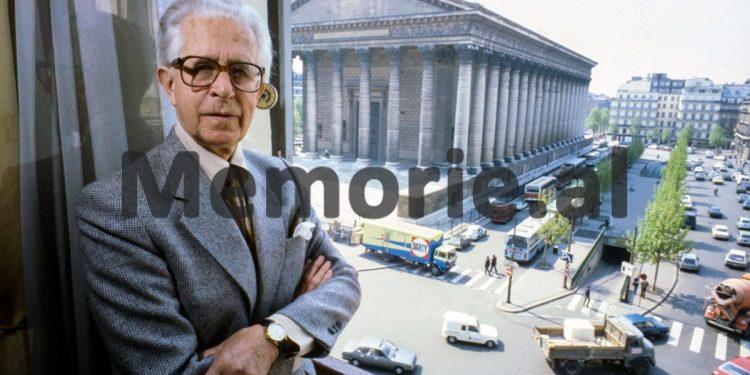
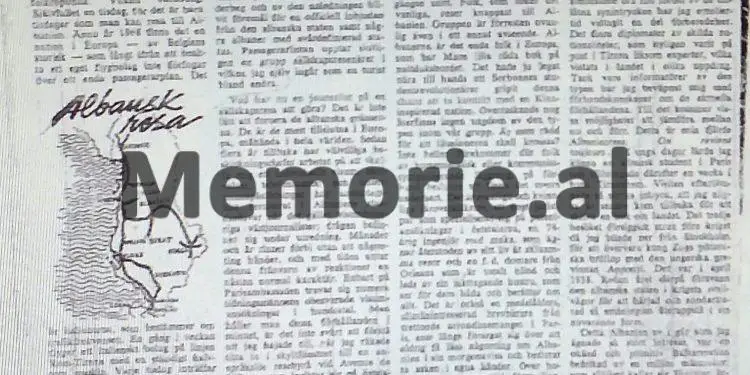
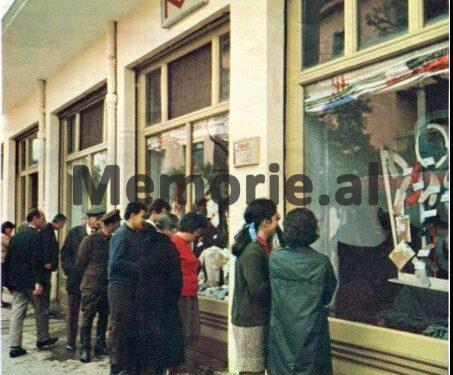
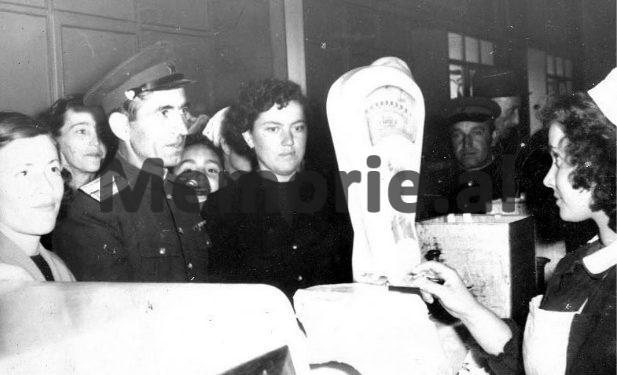
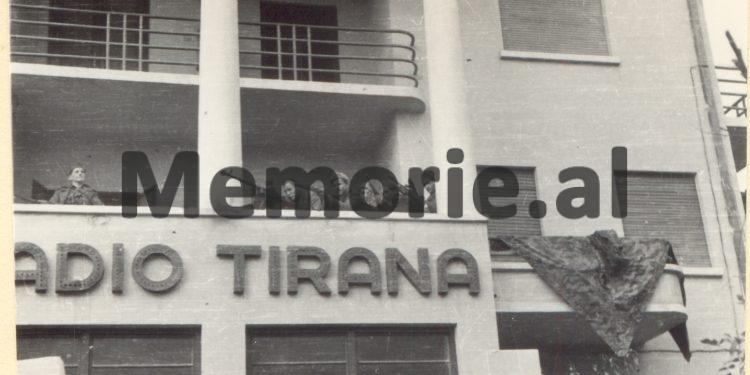

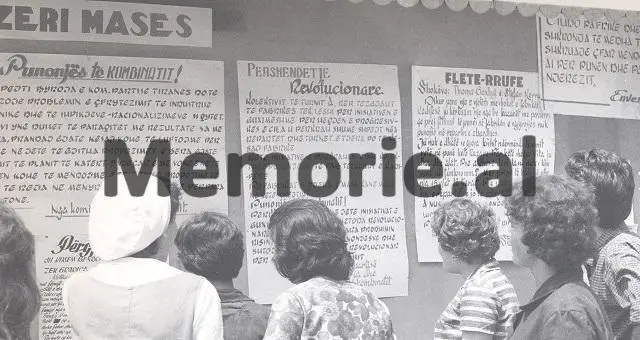
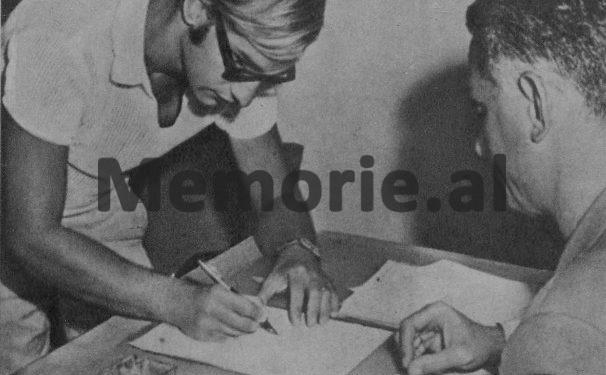
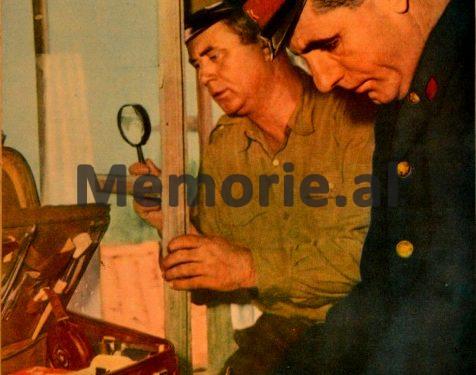
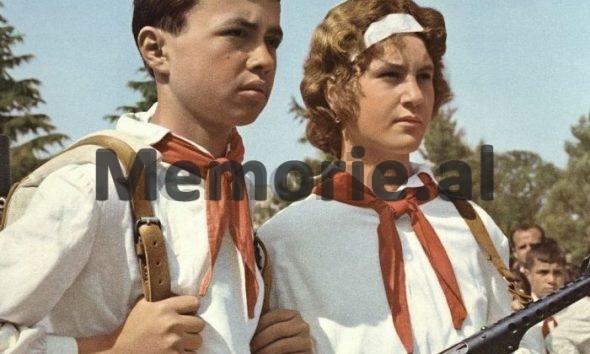
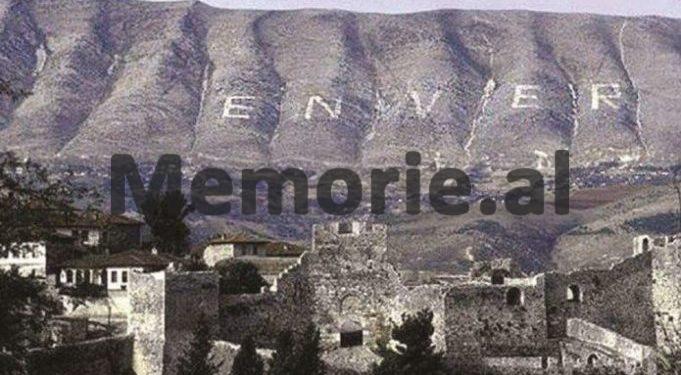
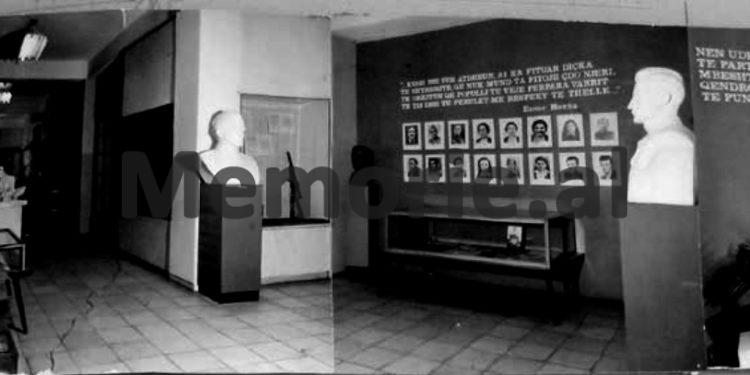
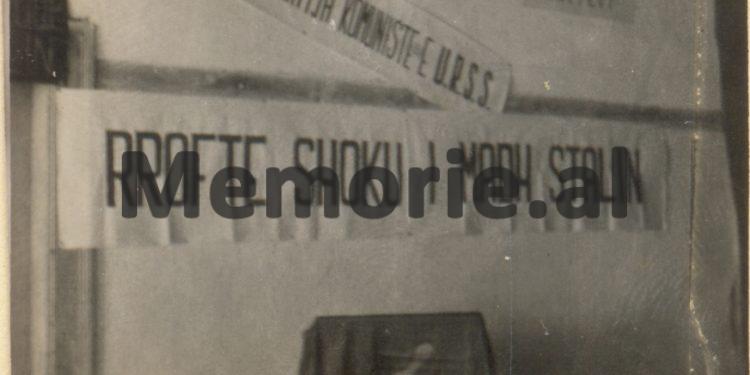
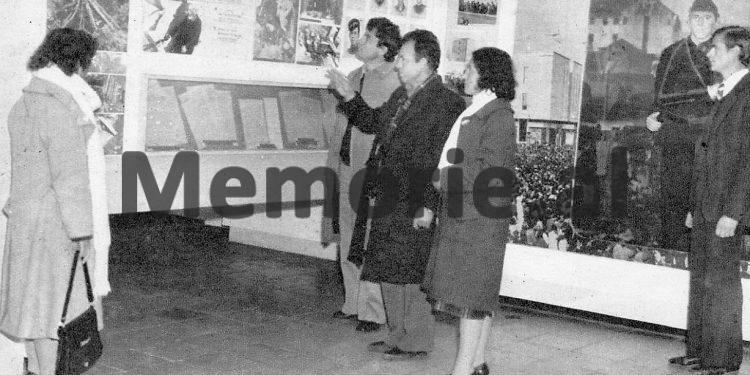
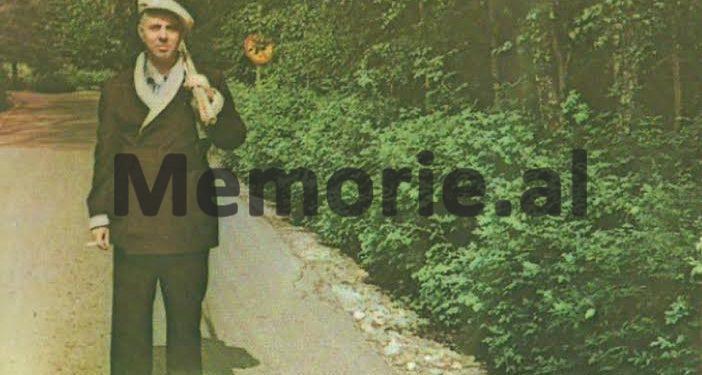
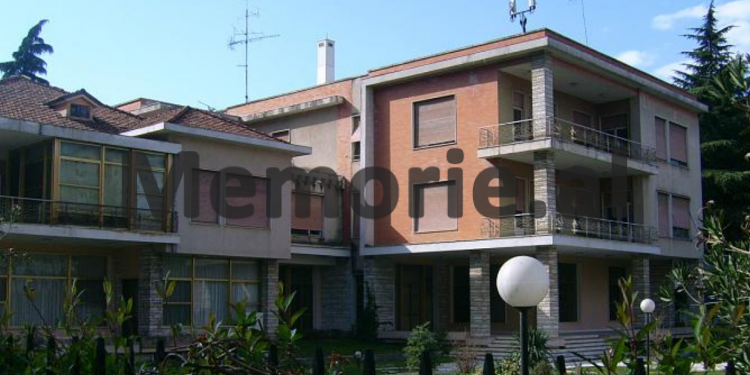
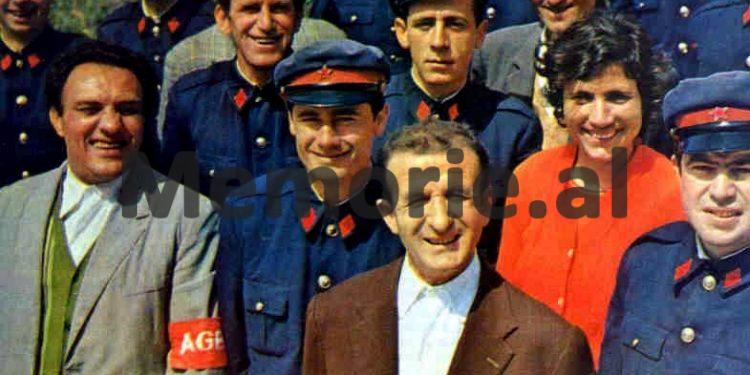
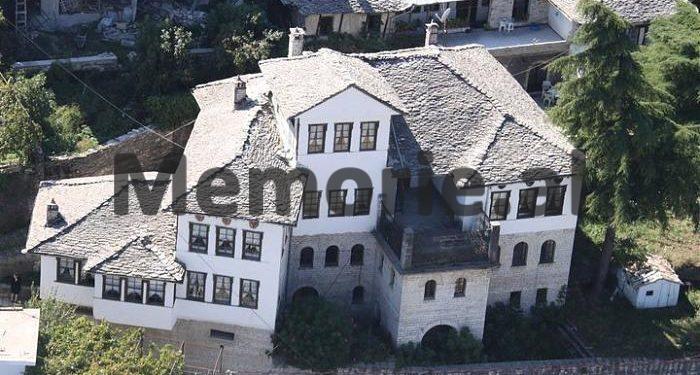
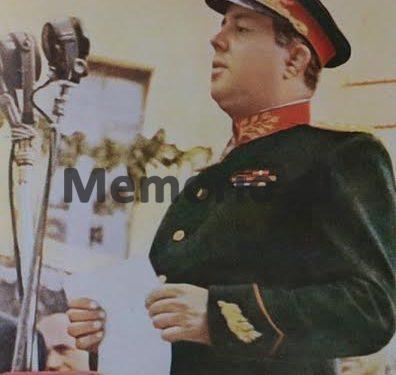
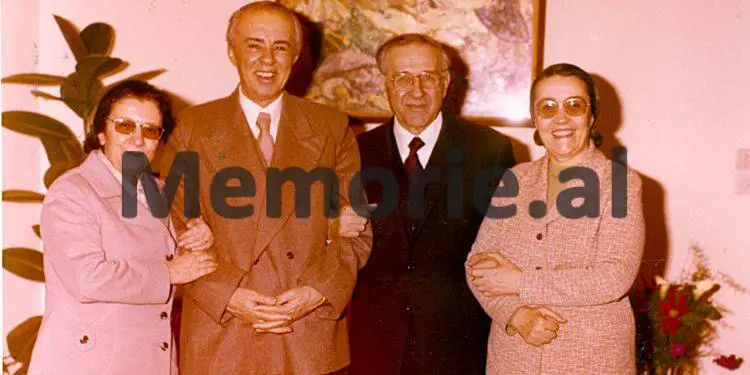
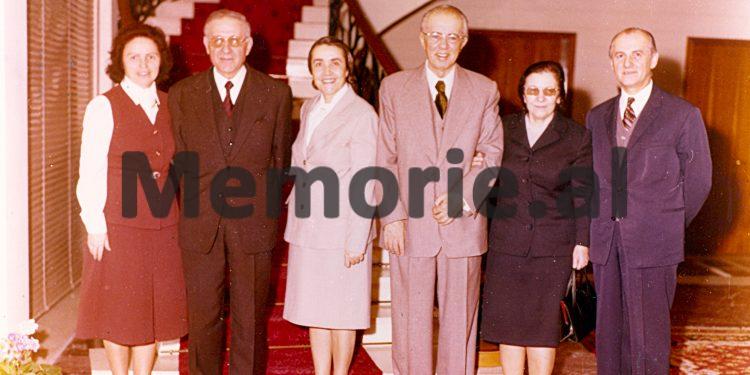
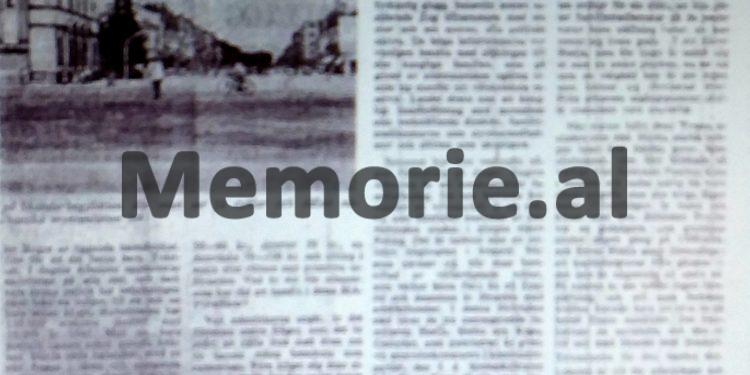

![“After the ’90s, when I was Chief of Personnel at the Berat Police Station, my colleague I.S. told me how they had once eavesdropped on me at the Malinati spring, where I had said about Enver [Hoxha]…”/ The testimony of the former political prisoner.](https://memorie.al/wp-content/uploads/2024/09/admin-ajax-4-350x250.jpg)
